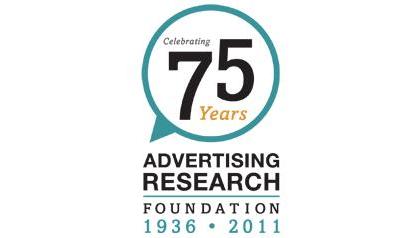Interview with Robert Bain of Research Magazine - ARF Insights

For those in the market research industry, Researchmagazine is the go-to source for news, opinions, and trends. We spoke with Robert Bain, Research's Deputy Editor, about his perspective on the challenges facing the research industry.
ARF: How does your experience atResearchimpact how you personally see and predict the changes our industry needs to get ahead of?
Robert Bain: Some of the big changes we see are about new technology and techniques – mobile, social media, neuroscience, and 'big data'. Others are about the rise of competition from new areas. There was a great moment at this year's Esomar Congress when Joan Lewis of P&G made an appeal to agencies for help in moving beyond surveys. When someone like that is saying that research has to change, you need to sit up and listen.
I think behavioral economics (or behavioral science in general) is a particularly interesting trend because it's not driven by technological change, it's just a bunch of ideas that have been around for a while but are getting renewed attention. It challenges the assumptions behind a lot of market research. Of course, any researcher who hasn't realized yet that consumers don't always do what they say they'll do, should probably get a different job. The question is, do you just shrug off the shortcomings of the old methods or do you try for something better?
Because of trends like these, as well as economic pressures, I think researchers will have an increasingly hard time justifying the way they do things with clients. Which is probably a good thing.
ARF:You recently wrote an article,"Whatever next?"which discusses predicting and facing the future. In developing this article, what discoveries were most interesting to you?
Bain:Firstly, it's really hard to predict the future – it's amazing how wrong we are in our predictions so much of the time. Secondly, it's amazing how bad we are at realizing this.
But the most revealing thing that came out of that article for me was what John Kearon of BrainJuicer said about the difficulty of persuading clients to try out new research methods. Even though researchers are supposed to be detached experts, they're prone to the same psychological quirks as anyone else when deciding what to buy. In other words, this is an industry that provides hard evidence for decisions, but everything we know about human decision-making tells us that it often isn't really driven by hard evidence.
ARF: We often see statistics as tools to predict change and how we can get ahead of change. Please briefly tell us about your November 2011 article"Statistics – lost in translation."
Bain:That article arose from a debate about why statistics so often get misunderstood by the public and abused by politicians and journalists.
Statistics are vital, of course, and we have to try to use them to prepare for the future. But they can be tricky to communicate. In the 2010 UK election, Gordon Brown quoted as many statistics as he could in all his speeches to back up what he was saying. It didn't work, because people just don't connect with those sorts of figures. A million pounds, a billion pounds, ten billion pounds . . . it doesn't really mean anything to anyone. In the end it just reinforced the image of Brown as distant, dusty, and boring.
The key is to find ways to present statistics that are engaging, easy to understand, and transparent. So I think the trend for infographics and data visualizations is really interesting – taking numerical data and making it friendlier, more human.
Want to hear more? Robert Bain will be moderating a panel of research executives on "Getting ahead of Change" at the ARF annual convention. Registration is now open.

